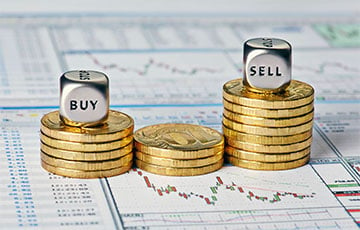U.S. Companies To Send Record Amount Of Funds To Buy Back Shares
4- 6.05.2025, 22:54
- 4,740

The buyback was one of the highest in 40 years.
In April, U.S. companies announced their intention to send a total of $233.8 billion to buy back their shares. This is the second highest monthly figure in history, since 1984. The absolute record was in April 2022 - then the figure amounted to $242.7 billion, according to Bloomberg with reference to the data collected by the American research company Birinyi Associates.
The record was not only April. According to analysts' calculations, the amount of funds allocated for buybacks for the period from the beginning of the year through May 2 turned out to be the highest since at least the beginning of calculations in 2013. The figure totaled $665.1 billion compared to $300.3 billion in 2013. The second highest for the same period was $598.5 billion in 2022.
Apple, Visa, Wells Fargo and Delta Air Lines, among others, announced plans to repurchase in the first fiscal quarter.
Deutsche Bank's calculations confirm the trend, although the amount of money being directed to buybacks is lower, according to the bank's estimates, at about $500 billion over the three-month period.
The growing popularity of the buyback strategy among U.S. companies is a contradictory signal about the state of the U.S. stock market. Through buybacks, companies are maintaining quotations and returning funds to shareholders. In addition, the observed increase in activity may indicate an improvement in market sentiment as companies stop holding on to liquidity. Last week alone, companies in the S&P 500 announced share buybacks worth $119 billion. This may have been facilitated by the stabilization of the news background related to tariff wars.
On the other hand, the fact that companies are going for buybacks even in an overvalued market, ignoring opportunities to invest retained capital (the so-called "dry powder") in fixed assets, indicates the continuing uncertainty in the U.S. economy. This is evidenced by another troubling factor - the drop in mergers and acquisitions in April to a 20-year low.
According to Dealogic, only 555 such deals were completed in the U.S. last month, the fewest in any month since May 2009. As Reuters writes, investment banks had expected a very different dynamic ahead of Donald Trump taking office as U.S. president in 2025, as it was believed that the Trump administration would generally act in the best interests of business.
But after "liberation day" on April 2, when the U.S. president announced a base duty of 10% on all imports and reciprocal duties, deals began to be delayed around the world. As a result, 2,330 deals were concluded globally in April, the lowest since February 2005 and 34% below the historical monthly average.











